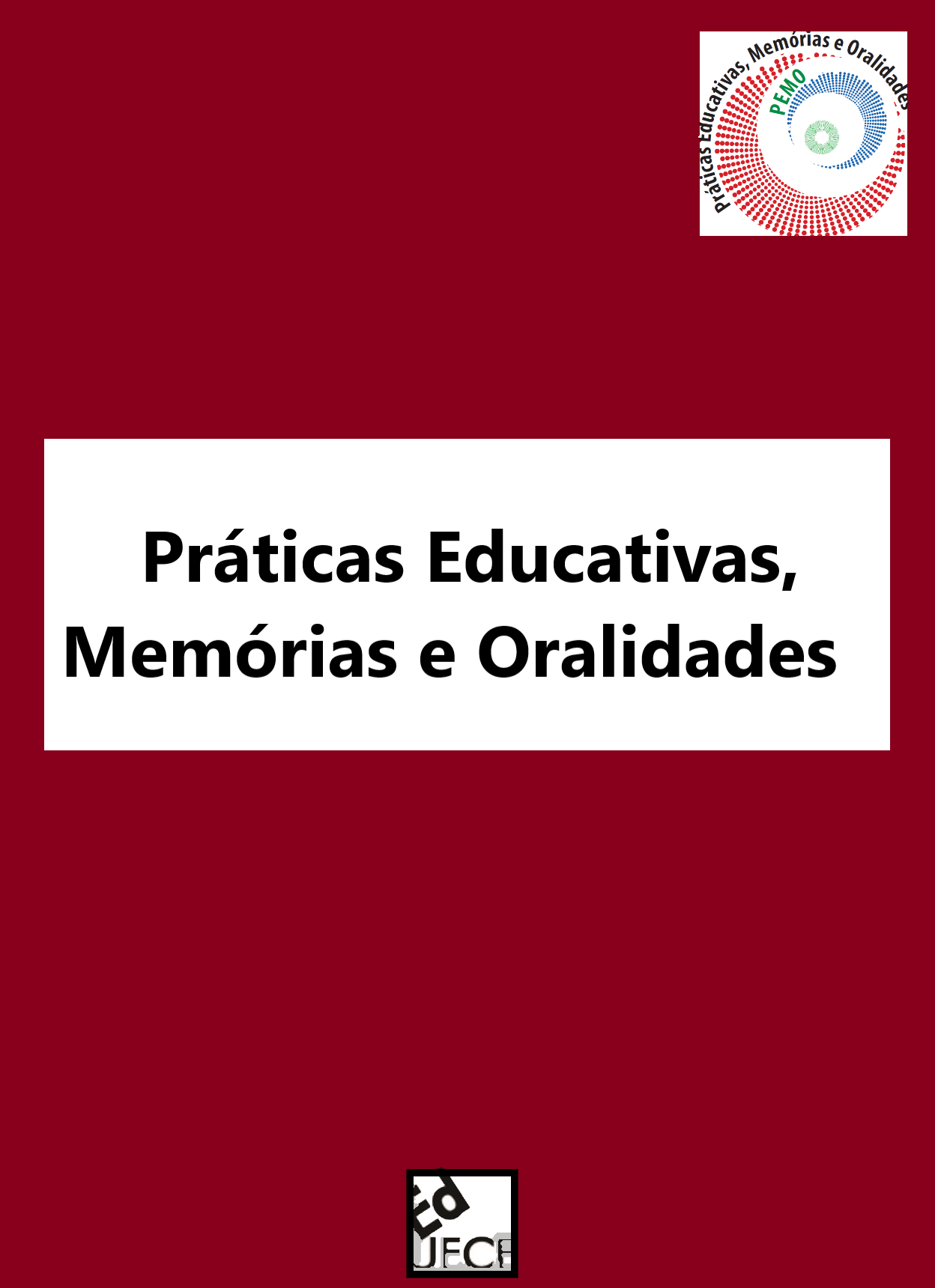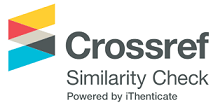O construtivismo crítico e transformador para uma educação em paisagem
DOI:
https://doi.org/10.47149/pemo.v7.e14389Palabras clave:
Aprendizaje Basado en el Paisaje, Desarrollo Sostenible, Formación Ciudadana, Educación Científica, Educación AmbientalResumen
Este trabalho consiste em um ensaio crítico sobre Educação em Paisagem que propõe a integração entre pedagogias do construtivismo crítico e a educação transformadora nesse campo educacional ainda inovador no Brasil. Discute-se que a aprendizagem em paisagem pode ocorrer de maneira mais ampla, abrangendo distintas faixas etárias, setores, disciplinas, culturas e instituições, assumindo estratégias inclusivas. A aprendizagem baseada na paisagem pode contribuir para a alfabetização científica e ambiental, a valorização do patrimônio cultural e natural, a promoção da sustentabilidade e da resiliência em nossas paisagens. O texto destaca a importância da abordagem participativa e colaborativa na Educação em Paisagem, envolvendo a escola e a comunidade local na construção de soluções sustentáveis para os desafios ambientais e sociais. O texto também proporciona a discussão de concepções de John Dewey e de Paulo Freire e outros teóricos da educação para argumentar que a Educação em Paisagem pode ser uma ferramenta poderosa para a formação de cidadãos críticos e politicamente engajados.
Descargas
Citas
BETZ, Joseph. John Dewey and Paulo Freire. Transactions of the Charles S. Peirce Society, v. 28, n. 1, p. 107–126, 1992.
BOWERS, Chet A. Silences and double binds: Why the theories of John Dewey and Paulo Freire cannot contribute to revitalizing the commons. Capitalism Nature Socialism, v. 17, n. 3, p. 71–87, 2006.
BROWN, Matthew J. John Dewey’s logic of science. HOPOS: The Journal of the International Society for the History of Philosophy of Science, v. 2, n. 2, p. 258–306, 2012.
CABRAL, Clara Bertrand. Património cultural imaterial: convenção da Unesco e seus contextos. Leya: Lisboa, 2018.
CRESPO, José Manuel. La educación en paisaje en el Grado de Maestro de Educación Primaria. Universidad Complutense de Madrid, 2017.
CRESPO, José Manuel. Paisaje, un concepto geográfico para la educación ecosocial. Con-ciencia social: Segunda Época, n. 4, p. 59–72, 2021.
CECCON, Sheila. A educação ambiental em diálogo com os princípios de Paulo Freire. Instituto Paulo Freire: IX Encontro Internacional do Fórum Paulo Freire, São Paulo, 2014.
CRESPO, José Manuel; MARTÍNEZ-HERNÁNDEZ, Carlos; MATEO GIRONA, María Rosa; RODRÍGUEZ DE CASTRO, Ayar. Landscape Education Two Decades after the European Landscape Convention - A Study with Trainee Teachers. Education Sciences, v. 13, n. 12, p. 1188, 2023.
DE LA VEGA, Alfonso García. El paisaje: un desafío curricular y didáctico. Didácticas específicas, n. 4, p. 7–26, 2018.
DEWEY, John. Human nature and conduct: an introduction to social psychology. Warren Press, São Paulo, 2015.
DURAKOGLU, Abdullah; BICER, Baykal; ZABUN, Beyhan. Paulo Freire’s alternative education model. The Anthropologist, v. 16, n. 3, p. 523–530, 2013.
FERNÁNDEZ ÁLVAREZ, Rubén. La enseñanza del paisaje desde una concepción constructivista: propuesta didáctica. DeDiCa. Revista de Educação e Humanidades, n. 15, p. 135-159, 2019.
FREIRE, Paulo. Conscientização: teoria e prática da libertação. São Paulo: Cortez, 1979.
FREIRE, Paulo. The politics of education: culture, power, and liberation. Greenwood Publishing Group, 1985.
FREIRE, Paulo. Pedagogia da indignação: cartas pedagógicas e outros escritos. São Paulo: UNESP, 2000.
FREIRE, Paulo. Pedagogia do oprimido. 31° ed. Rio de Janeiro, Editora Paz e Terra, São Paulo, 2006.
GADOTTI, Moacir. Lições de Freire. Revista da Faculdade de Educação, v. 23, 1999.
GADOTTI, Moacir. Escola cidadã educação pela cidadania. Editora Cortez, São Paulo, 2000.
GÜNDOĞDU, Hakan. Eleştirel düşünme ve eleştirel düşünme öğretimine dair bazı yanılgılar. Celal Bayar Üniversitesi Sosyal Bilimler Dergisi, v. 7, n. 1, p. 57–74, 2009.
HODSON, Derek. Time for action: Science education for an alternative future. International journal of science education, v. 25, n. 6, p. 645–670, 2003.
HODSON, Derek. Looking to the future. Springer Science & Business Media, 2011.
JOLDERSMA, Clarence W. The tension between justice and freedom in Paulo Freire’s epistemology. The Journal of Educational Thought (JET)/Revue de la Pensée Educative, p. 129–148, 2001.
LICERAS RUIZ, Ángel. El Paisaje: ciencia cultura y sentimiento. 1a ed. Granada. Disponível em: https://www.ub.edu/geocrit/b3w-1087.htm
LIMA, Valéria Vernaschi. Espiral construtivista: uma metodologia ativa de ensino-aprendizagem. Interface-Comunicação, Saúde, Educação, v. 21, p. 421–434, 2016.
MARTÍNEZ-MEDINA, Ramón; ÁVILA-MARÍN, Covadonga. La noción del paisaje en el alumnado de Educación Primaria: un análisis de su representación. Documents d’anàlisi geogràfica, v. 67, n. 1, p. 133–151, 2021.
MAYO, Peter. Gramsci, Freire ve yetişkin eğitimi. Çev: Ahmet Duman. Ankara: Ütopya Yayınevi, 2011.
MENEZES, Marilia Gabriela de; SANTIAGO, Maria Eliete. Contribuição do pensamento de Paulo Freire para o paradigma curricular crítico-emancipatório. Pro-posições, v. 25, p. 45–62, 2014.
MISIASZEK, Greg William. Educating the global environmental citizen: Understanding ecopedagogy in local and global contexts. Routledge, 2017.
MISIASZEK, Greg William; TORRES, Carlos Alberto. Ecopedagogy: The missing chapter of Pedagogy of the Oppressed. The Wiley handbook of Paulo Freire, p. 463–488, John Wiley & Sons, Nova Jersey, 2019.
MISIASZEK, Gregery William. Ecopedagogy in the age of globalization: Educators’ perspectives of environmental education programs in the Americas which incorporate social justice models. University of California: Los Angeles, 2011.
MURARO, Darcísio Natal. John Dewey e Paulo Freire: educação e transformação social. Revista Lusófona de Educação, v. 58, n. 58, 2022.
MURARO, Darcisio Natal. Democracia, liberdade e educação: Paulo Freire leitor de J. Dewey. Cognitio-Estudos: revista eletrônica de filosofia, v. 9, n. 2, p. 205–226, 2012.
Descargas
Publicado
Cómo citar
Número
Sección
Licencia
Derechos de autor 2025 Erico Fernando Lopes Pereira-Silva, José Manuel Crespo Castellanos (Autor)

Esta obra está bajo una licencia internacional Creative Commons Atribución 4.0.
Os autores possuem direitos autorais dos seus textos:
A revista "Práticas Educativas, Memórias e Oralidades permite ao/s autor/es os direitos de publicação, no entanto, recomenda um intervalo de cinco anos para o caso de republicação ou referência ao primeiro local de publicação, no caso, o link da Rev. Pemo..
Os nomes e endereços informados nesta revista serão usados exclusivamente para os serviços prestados por esta publicação, não sendo disponibilizados para outras finalidades ou a terceiros.













